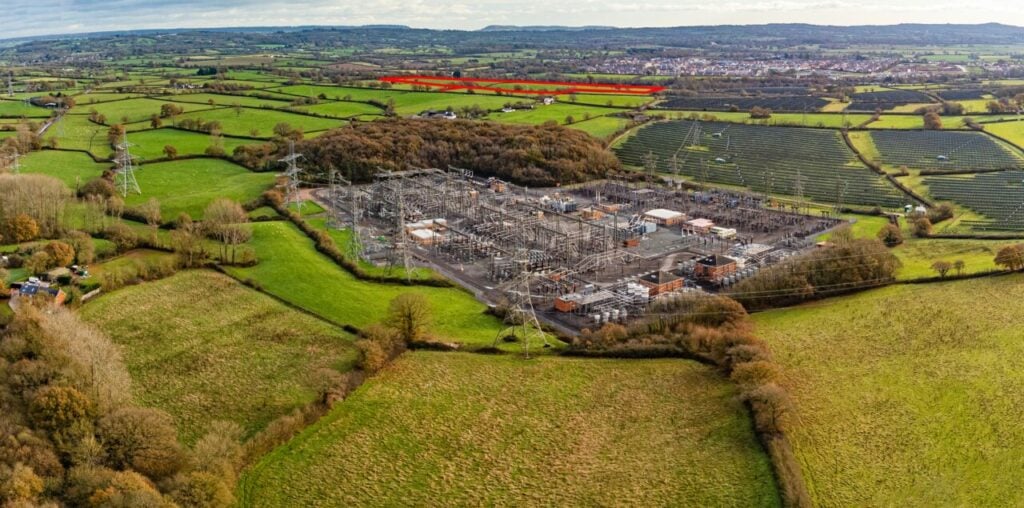
UK-based energy company Statera Energy has secured planning consent for a 290MW/1,740MWh battery energy storage system (BESS) to be developed near the county capital, Exeter.
Granted by East Devon District Council, the BESS will be capable of providing energy for six hours, with the project expected to be connected to the grid in 2027. This date will also see Statera begin to provide contributions to a local poverty fund.
The project will be located near an existing solar farm, as seen in the image above. East Devon County Council agreed that the BESS was needed to store renewable energy from the grid when generation exceeds demand – a key argument for developing BESS.
Detailed within the press statement, Statera declared that planning officers advised that the BESS “would provide benefits, in the form of reducing dependency upon fossil fuels and contributing to energy security in the UK.”
The Exeter BESS will become Statera’s sixth operational battery asset. Its first schemes in Pelham (50MW) and Creyke Beck (49.5MW) have been storing electricity since beginning operations in 2017.
Statera is currently building a 300MW battery at Tilbury Substation in Essex and maintains over a gigawatt of battery schemes in the UK.
East Devon Council accepted advice from the Fire and Rescue Service that the proposed design, with fire detection and suppression systems, poses “no fire risk concerns”. This comes as Cleve Hill Solar Park saw its proposed battery safety management plan (BSMP) rejected by Swale Borough Council’s planning committee.
Oliver Troup, development lead at Statera Energy, said: “It’s easy to jump to conclusions about unfamiliar technologies and Statera is grateful to the community around Whimple for carefully considering our track record and all the evidence we presented. As a result, this project is able to make a significant contribution to the UK’s transition to clean energy, and local people will also benefit directly through a boost to the fuel poverty fund.”

